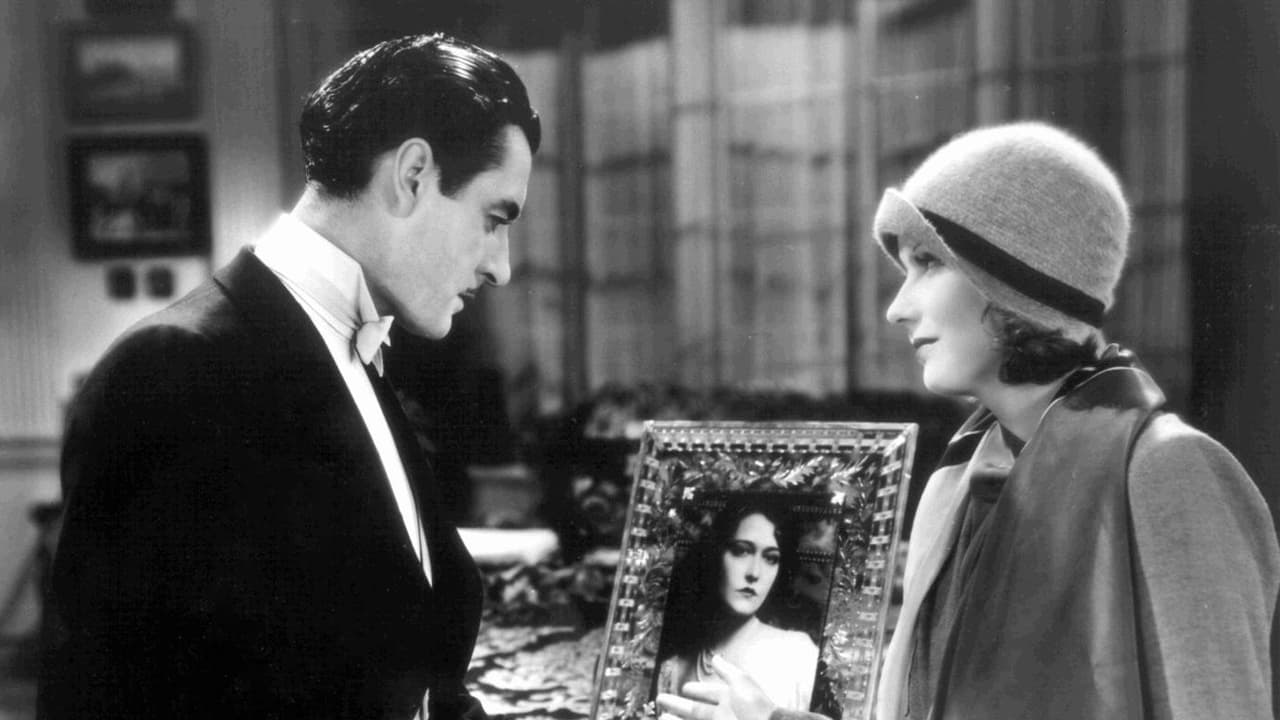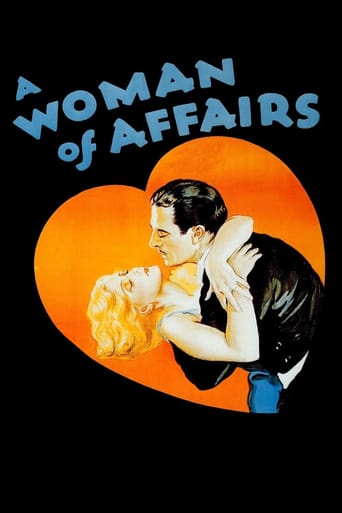

This is Greta Garbo's best silent movie, and maybe her best movie, period. Some posters have noted that the story is a bit goofy. That's because in the original novel, the Garbo character's husband commits suicide on his wedding night because he has syphilis; due to censorship, this was changed to his being an embezzler. Thus the heroine's subsequent public promiscuity to protect his name, and the fact that everyone treats her like a leper, make very little sense. Yet the brilliant cast and director manage to put the original meaning across anyway.But although sex and scandal are the story's raison d'etre, what makes the movie memorable is that it captures something essential about the time it was made (the end of the Roaring 20s): a restless, heedless cynicism and emptiness, a bitter gaiety, a mixture of desire and melancholy. And most of all, it shows the "new woman" of the 20s -- not a bug-eyed flapper doing a wild Charleston, but a woman who makes no fuss about being as strong and self-willed as a man. And in that respect, being so true to its own time, it achieves timelessness.There's a great moment when Garbo strides up to her disapproving older nemesis in a belted polo coat and cloche hat with a cigarette dangling from her lips. She stands there until he's forced to offer her a light, then instead pulls a lighter from her pocket and insolently does it herself. Another when she's on her honeymoon with a man she doesn't love, and she lies in bed switching the light on and off -- you realize that she's bored, impatient, horny, and regretful all at once.The story seems most dated when the characters are discussing whether or not Garbo is "good" or "decent." The men in the movie all stand around, trying to understand her and failing. She's beyond their narrow categories -- she has more wit, courage and intelligence than any of them. Watching her, she makes me ache with the feeling (like every other spectator, I'm sure) that the only one who's really capable of appreciating her is... me.
... View MoreI love silent films but I will be the first to admit that some plots from the early days of film tend to look a bit old fashioned and silly today. While A WOMAN OF AFFAIRS is definitely still watchable, it sure doesn't age well and today many who watch it will find the plot silly--I know I sure did! Despite the presence of the often overrated Greta Garbo, this film lacks believability. Don't believe any reviews that give this film astronomically high ratings simply because they love Garbo--the script is just too flawed to merit scores of 9 or 10.Greta and John Gilbert are in love. However, her family and his are enemies and John's father does his best to keep them apart. John is a bit of a weenie and reluctantly agrees to listen to his dad and take a job in Egypt instead of marrying Garbo. In his mind, he intends to work and make his fortune, then return to marry her. Naturally, though, this absence destroyed their plans and eventually both marry others.She marries a man who turns out to be an embezzler and kills himself on their wedding night. They don't even get a chance to consummate their marriage. However, and this makes no sense at all, Greta spends the rest of the movie being true to her husband--preserving his image as a nice guy. Without telling people, she manages to pay off all his debts and allows everyone to think she drove him to suicide (which, by the way, was really cool to watch)! This was dumb because there was no legitimate reason for this self-sacrifice--especially when Greta's brother (played by a young Douglas Fairbanks, Jr.) refuses to ever talk with her or see her again and pretty much everyone else treats her like a leper. Heck, when Gilbert marries, it's AFTER this incident--if he'd known the truth, he and Garbo surely would have married. Garbo could easily have told everyone--thus avoiding LOTS of trouble and such glaring holes can't be ignored. Later, however, Garbo's one true friend tells Gilbert and his nasty father the truth and everyone agrees that she's a living saint and everyone (including the wife) give Gilbert permission to divorce and marry Garbo!!! Talk about contrived and stupid! So if the plot is so bad and tough to believe, why does it still earn a 6? Well, the film is lovely to look at due to nice cinematography. Also, the acting is good and they make the most of a convoluted and dopey plot. Plus, while nowadays you'd laugh at such silly and contrived plotting, for 1928 it wasn't so bad--audiences made allowances for such plot devices.Also, note that because this film came out before the new tougher Production Code it was grittier and had plot elements that would not have been allowed if they film had come out in 1934. Starting that year, Hollywood needed to have permission to show such violent deaths or talk positively about divorce--something that they never would have granted.
... View MoreThis is a beautifully crafted melodrama, well acted and with high MGM production values, but with moral values that nowadays may well be seen as belonging to another planet. Nevertheless once the historical perspective is in place this is still a simple timeless classic, one I've now seen a dozen times over the years.Very honourable woman falls in love with equally honourable man, much to his even more honourable father's disfavour. You might notice that understanding "Honor" is the key to understanding this film! Garbo and Gilbert were perfect for the roles (making this a lovely bookend for Flesh And The Devil) and both never looked more gleaming beautiful, although Garbo had a few odd costumes along the way. They had a couple of languid clinches, but this time the plot got in the way of these scenes becoming "hot". Lewis Stone had already dropped into his avuncular stereotype here, his was a marvellously hammy but key performance. Everyone undulates their way to a fitting climax and conclusion (although didn't Neville come back into the room to Constance rather fast after Diana told him ---- ?)All in all one of my favourite silent melodramas, strangely neglected nowadays - or is there no honour left?
... View MoreA soap opera on the grand scale with the great screen team of John Gilbert and Greta Garbo. Like many "fallen women" of her period, Garbo's not "bad," but "misunderstood."
... View More